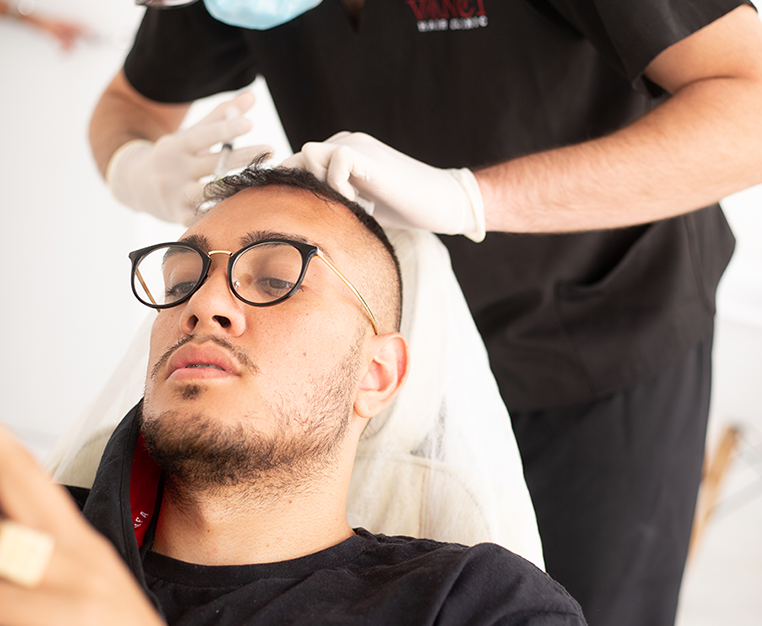Whether you’ve got your hair in a messy bun, added a new colour to it, or formed a new cut, it all says something about your personality traits, such as your attention to detail or self-care. The thing is that we’re constantly facing hair loss issues that arise out of nowhere and stop us from expressing our personality by having the hairstyle we want.
Today, we are focusing on four things women must know about hair loss and hair growth practices. If you don’t know what’s causing the problem, how are you going to fix it?
Why Does Hair Loss Occur?
Firstly, let’s talk about the hair loss process and why hair follicles detach from the rest of the hair, lowering its density. Women are subjected to hair loss in different degrees, but most have little to no knowledge of why this occurs. Getting to know the contributing factors helps us determine what steps to take to minimise it and boost hair growth.
Numerous everyday lifestyle factors may be contributing to your hair loss and you might not know it. These factors range from the food we eat, the environment and even air pollution. And that’s before we start talking about other issues like genetics and stress.
Simply keep in mind that if you’re questioning your hair shedding or sudden extensive hair loss, the answer probably lies in a change in your diet, lifestyle or environment. We’ve picked four prominent factors to discuss in this article:
-
Changes in Stress Levels
Stress is an enemy of healthy hair. Look back to those stressful days when you were dealing with personal issues or working too hard, too long and too intensively. Did you notice an increase in hair shedding?
Stress is an attritional factor in most areas of our life and hair loss is no exception. Now, here’s what happens: when you experience stress, a hormone known as cortisol is released in the body. Cortisol impacts the regular cycle of hair follicles.
An increase in the levels of cortisol causes a decrease in the number of biological components that contribute to hair growth. Experts at Harvard University conducted a study in mice where they removed completely the adrenaline glands responsible for producing stress hormones, and this resulted in a fascinating discovery.
The resting phase known as telogen, during which the hair stops growing and might even shed, was shortened extensively and the hair began growing again at a quicker pace. So, stress was contributing to hair loss in measurable amounts.
In previous articles we’ve spoken about the impact of COVID-19, which contributed to an obvious increase in stress levels, leading to increased hair loss. Therefore, pay attention to self-care and avoid stressful situations for healthier hair.
-
Proper Nutrition and Hormone Levels
Hormone levels play an important role in hair loss, starting with the stress hormone we mentioned above. For instance, a fluctuation of hormone levels during the postpartum or menopause period causes a noticeable change in hair shedding.
During this time, women experience a reduction in female sex hormone levels. Additionally, other hormones like the thyroid hormone affect the health of hair follicles. Hypothyroidism or hyperthyroidism is when the thyroid gland is producing either too low or too high amounts of hormones.
These conditions lead to hair loss in different areas of your body, including both terminal and vellus hair. The follicles turn brittle and fragile and cannot maintain growth. These hormone levels are strongly linked to nutrition.
Through a proper diet, we provide our hair follicles with essential growth minerals like zinc and iron and enhance the gut microbiome health. This modulates inflammatory pathways, affecting the health of hair follicles.
-
Pollution Levels Around Us
Pollution is widely known for its negative effects on our lives, but did you know that it can also affect hair health? According to research conducted in 2019 by Future Science Research Centre, when hair is exposed to common pollutants such as particulate matter (PM), the levels of proteins responsible for hair growth decrease.
Even common particulate dust and byproducts derived from burning fossil fuels (diesel, petrol, coal, oil, etc.) weakened the capability of hair follicle cells to grow. When the amount of pollution was increased, it was followed by an increase in hair loss levels as well.
Being exposed to activities such as manufacturing, building and mining could lead to the release of harmful PM elements. Mainly, it was found that the effects of the pollutants were disproportionally related to a decrease of important proteins such as β-catenin, cyclin D1, CDK2 and cyclin E which ensure healthy hair growth.
-
Product Buildup from Hair Products
Hair supplements, shampoos and conditioners help adjust your hairstyle and boost hair growth, but immoderate use of them may leave buildup that affects the health of your hair. Buildup is created by a constant accumulation of leftovers from serums, conditioners, creams and sprays.
These cling to scalp and hair strands, preventing hair follicles from growing. Products that make hair smoother and glossier are rich in ingredients such as wax, mineral oil, silicone and other chemicals. Layering upon each other, these elements impede moisturising.
Buildup will also prevent conditioners from being thoroughly absorbed by your hair. It may also cause itching, flaking or scalp irritation.
Final Thoughts
Knowledge is power. Knowing that these factors affect your hair health puts you one step ahead in your bid to battle hair loss. Practising stress-relieving routines like meditation, eating well, using hair products moderately and avoiding hair pollutants will lead to healthier hair.
If you’re concerned about the condition of your hair, consider getting in touch with a certified dermatologist or hair expert. Vinci Hair Clinic has clinics worldwide, and our experts have accumulated a wealth of experience while treating patients globally. Get in touch and book your free consultation today!



